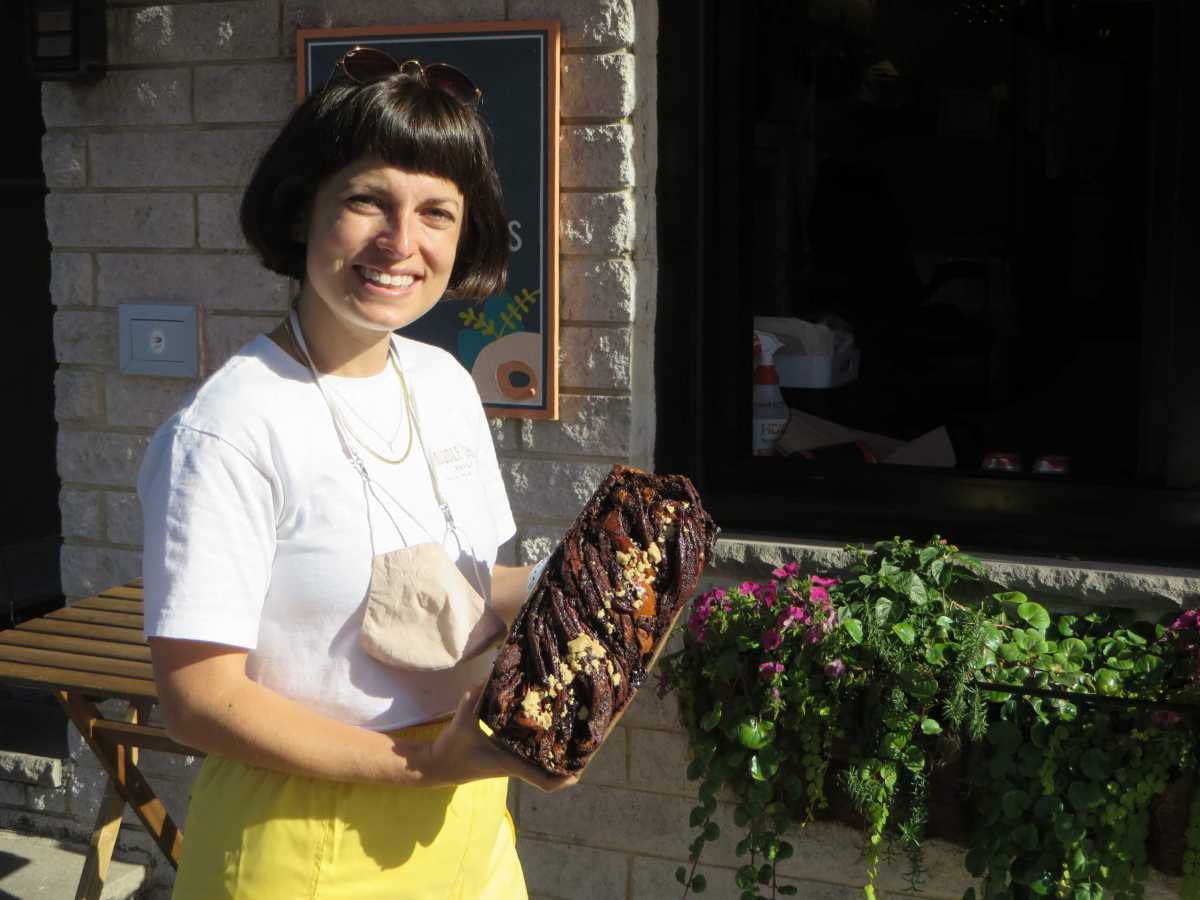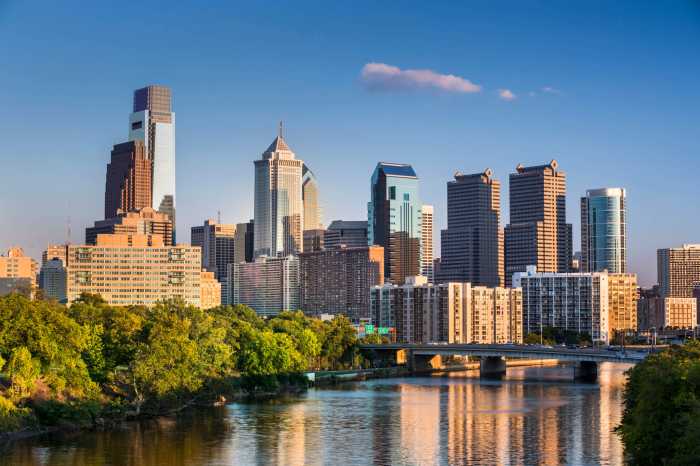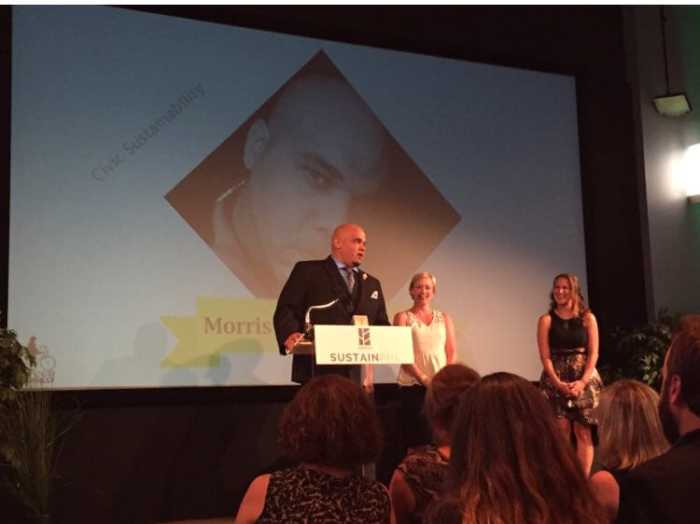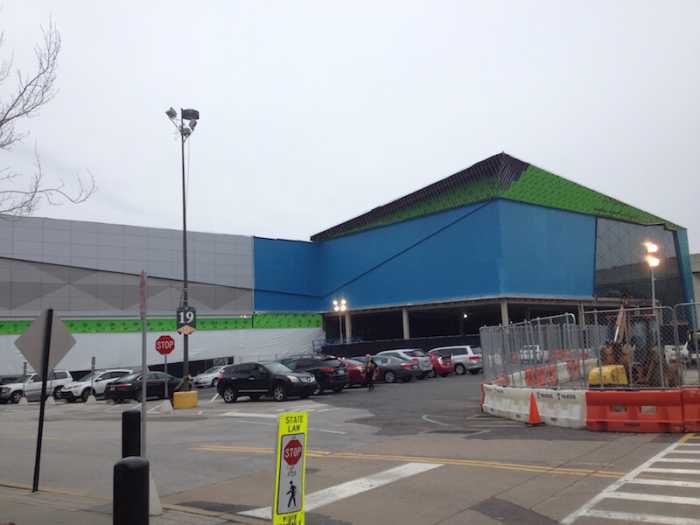
For Tova du Plessis, the biggest realization was that she still had a market.
Du Plessis, who owns Essen Bakery in South Philadelphia, said she and her husband, Brad, were in a “time of panic and despair” after he lost his job and she was forced to close her shop due to the novel coronavirus pandemic.
On that day in March, when all non-essential businesses were ordered to shutter, she laid off everyone on the bakery’s small staff.
There were some doughs already mixed and items prepared, so du Plessis decided to put up a form on Essen’s social media pages to get rid of the remaining product. It sold out in minutes, and, the next day, she drove around and dropped it off.
“I think the big revelation for me was there actually is so much demand,” du Plessis said. “It was just very easy to go to this place of despair as a food business operator.”
“I still have a business, basically, because there are people that want baked goods, and I can make them and I can sell them,” she added.
Essen’s business model changed dramatically, as the bakery quickly shifted toward home delivery, and du Plessis made changes to her storefront to make it more inviting for COVID-conscious customers.
The bakery had never offered delivery, so du Plessis spent time upgrading the system from a Google Docs form to an ecommerce platform built into the shop’s website.
It’s one of many changes that have been positive for the business and will remain beyond the pandemic, she said.
Du Plessis, a former hotel pastry chef who was raised in South Africa, opened Essen in 2016, after an opportunity arose to take over and revamp a small bakery on East Passyunk Avenue near Dickinson Street.
Essen is a Jewish bakery that specializes in babka, challah bread, bagels, black and white cookies and other sweet treats.
“For me, there’s some nostalgia with some of these items, but I also knew I could make them better with my experience and training, better than the versions that I grew up with, at least,” du Plessis said.
On a recent sunny afternoon, people wandered up to Essen’s new-and-improved takeout window, and one woman told an employee at the counter, “I’ve heard a lot about you.”
Tables are lined up next to the curb and surrounded by turf — one of the city’s many “streeteries” — and there is also seating along the wall of a typewriter store next door.
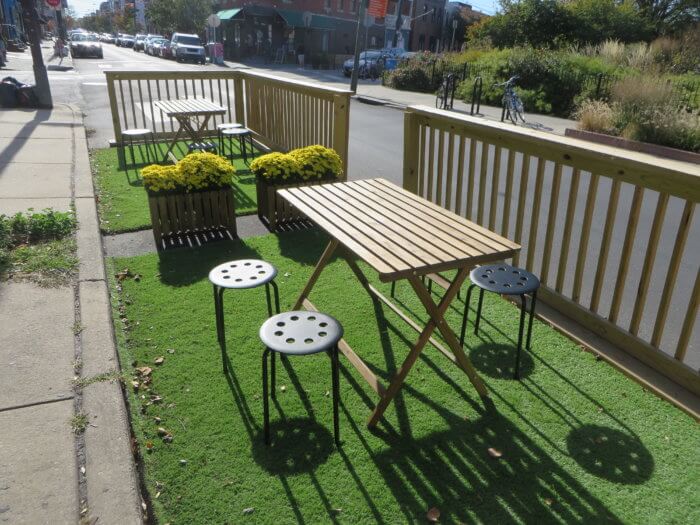
The bakery reopened in June, with a multitude of changes. The shop’s tiny interior was closed off to customers and all transactions were shifted to the window, giving staff enough room to practice social distancing.
In addition, du Plessis installed a new awning for people to stand under in the rain and upgraded the bakery’s signage. She received permission from the city and the typewriter shop to expand outdoor seating, which she said has increased Essen’s visibility.
“In some ways, COVID has actually kind of addressed some problems that were there before that we wouldn’t have addressed otherwise,” she said. “I’m grateful for the changes that we’ve made because I think they’ve been great changes for the business regardless.”
Traffic has ticked up, and Essen’s staff is back to around pre-pandemic levels, though revenue hasn’t quite recovered.
Before the coronavirus, du Plessis did more wholesale — supplying other local stores with her products — and catering. Most of that business has disappeared.
“The business that we’re doing in the shop is enough to keep it going. We’re managing,” du Plessis said. “The question will be what will happen when it gets cold because we won’t be able to put out the seating anymore.”
Du Plessis was able to secure a Philadelphia Industrial Development Corporation grant, which she said helped a lot, and a federal Economic Injury Disaster Loan.
Another major boost has been gift card sales. Essen devotees bought a bunch at the beginning of the pandemic, du Plessis said, part of a trend to keep local businesses afloat during the period of mandatory lockdowns.
“I really have to thank and admire my community for being able to get through this,” she said. “I don’t even know if people realize that they made it happen.”



